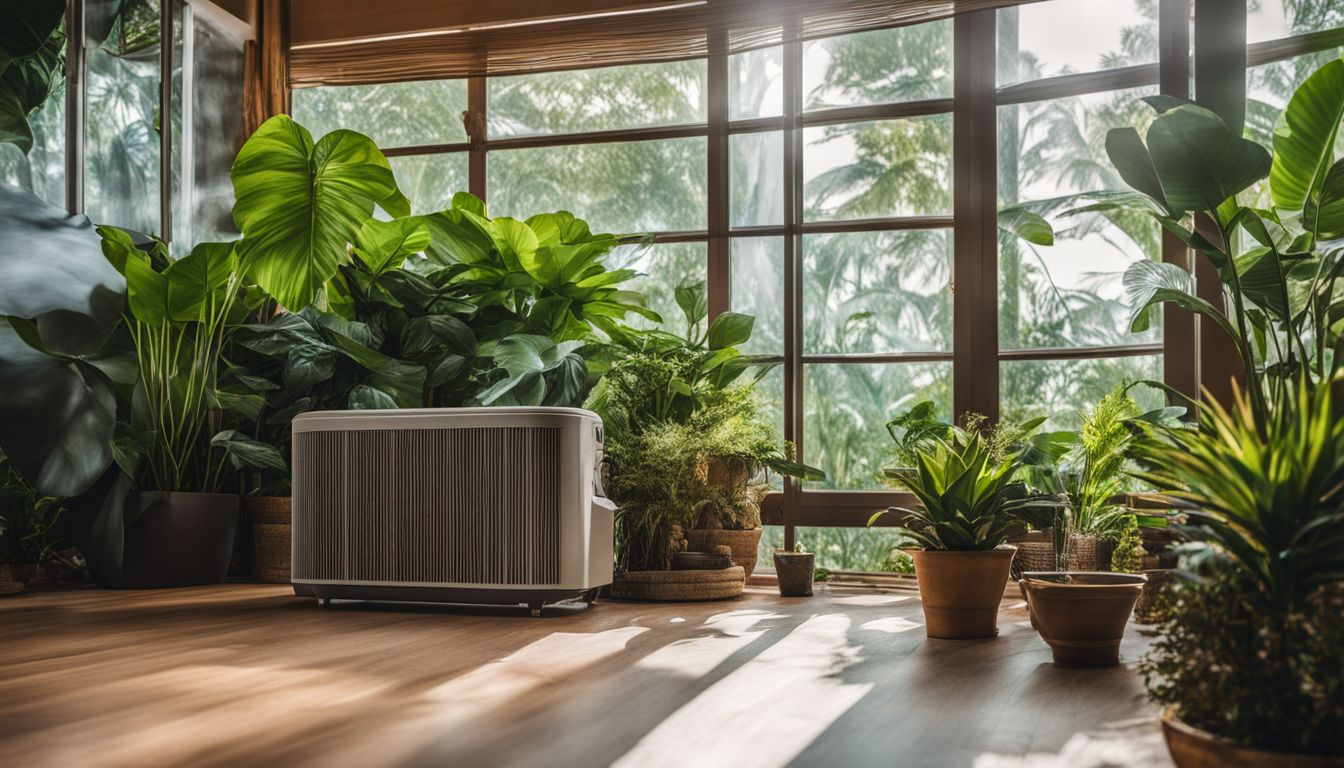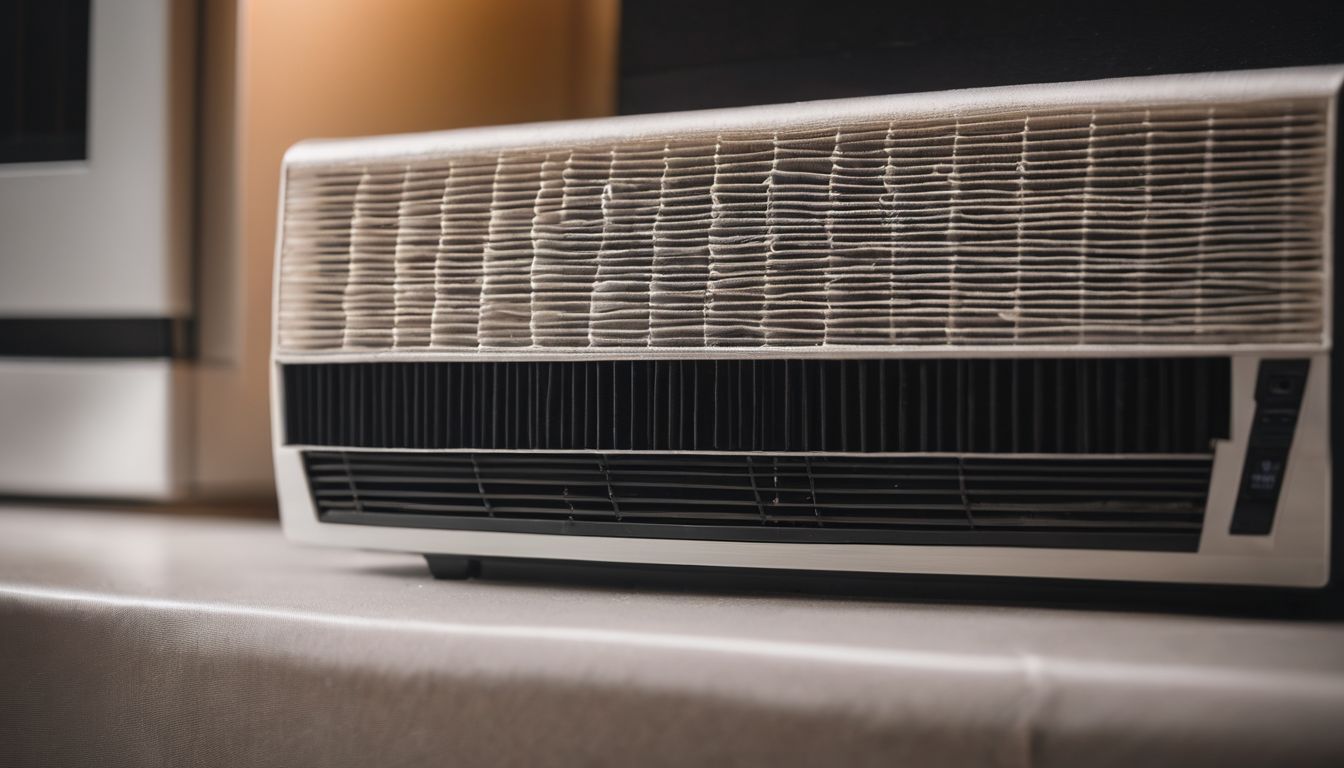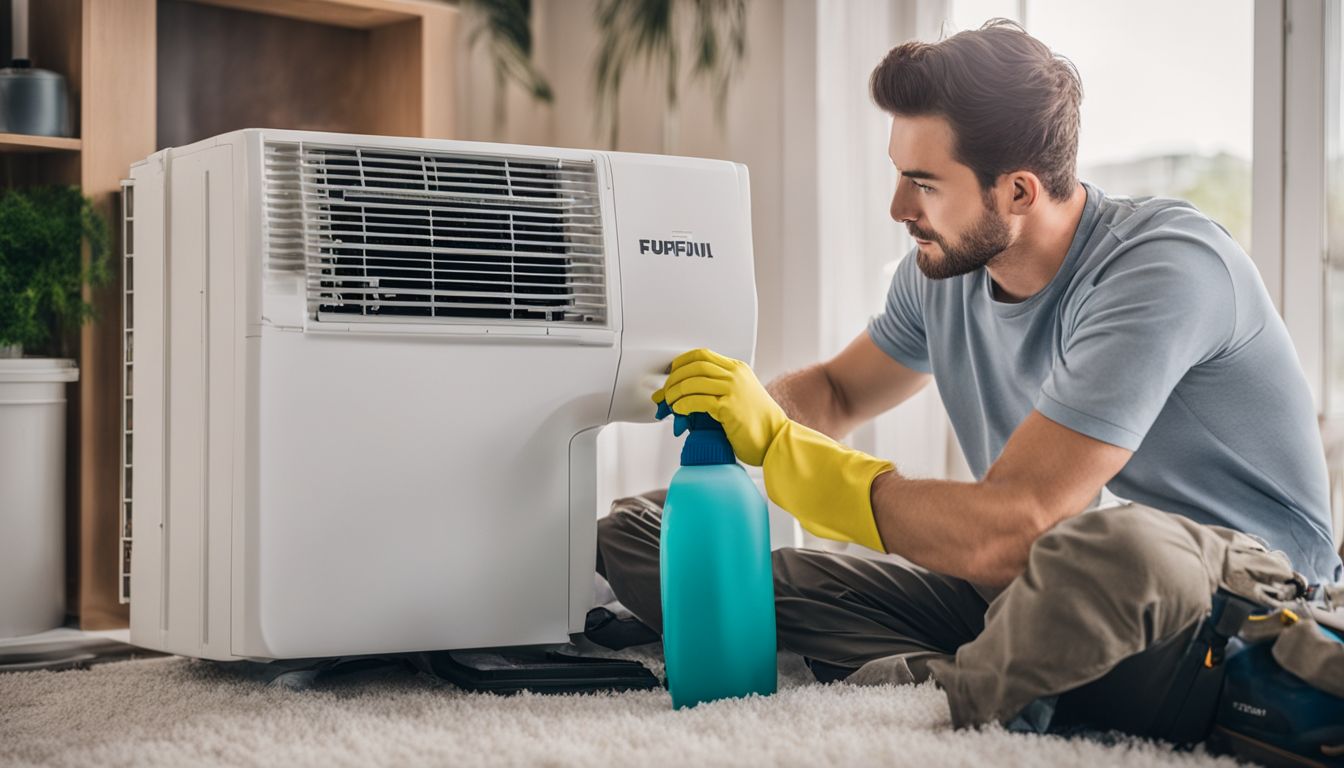Are you wondering why your AC filter seems to get dirty too quickly? It’s a frustrating problem that can affect the clean air flowing through your home. Our blog will reveal the common reasons behind this annoyance and offer practical solutions for better, long-lasting filtration.
Keep reading to breathe easier!
Causes of Rapid AC Filter Dirt Accumulation
When your air conditioning unit’s filter becomes clogged quickly, it can often be traced back to specific issues within your HVAC system or home environment. Let’s delve into the underlying factors that may lead to this swift accumulation of dirt and how they impact the overall efficiency of your heating and cooling setup.
Unsealed AC Unit
An unsealed AC unit undermines your home’s air quality. Gaps or cracks around the unit let in dust, pollen, and other airborne pollutants that should be kept outside. These contaminants bypass your air filters, causing them to clog up faster than they should.
As a result, you’re left with dirtier air circulating through your living spaces.
Properly sealing every nook and cranny of your air conditioning system is crucial for maintaining optimal performance and energy efficiency. Without a good seal, not only do harmful particles invade indoor air, but they also put extra strain on your HVAC system.
This leads to higher utility bills as the system works harder to compensate for compromised airflow and decreased energy-efficient operation. Keep an eye out for signs of an unsealed AC, such as visible gaps or unusual drafts near the unit – addressing these issues promptly can save money and protect health over time.
Presence of Mold in the AC Unit
Mold thrives in damp places, making the AC unit a perfect spot to grow. This unwanted guest can sneak into your air conditioner when moisture accumulates due to leaks or water damage.
Not only does mould clog up the filter quickly, but it also risks indoor air quality and could lead to serious health concerns. Common signs include a musty smell and unexplained allergies or respiratory issues.
Regular checks can help catch mould growth before it becomes extensive within the system. Airborne particles feeding on organic matter from dust turn your filter into a fertile ground for spores to flourish.
Ensuring that components like evaporator coils and drain lines stay clean prevents moisture buildup, reducing mould risks significantly. Keeping these areas dry helps maintain cleaner indoor air and promotes healthier living conditions without compromising your AC’s efficiency.
Solutions to Prevent Rapid AC Filter Dirt Accumulation

In grappling with the vexing issue of swift dirt build-up in AC filters, adopting proactive measures can significantly curtail this nuisance. From meticulous maintenance routines to enhancements in system integrity, these steps are pivotal for ensuring your air conditioning unit operates at its optimum, safeguarding energy efficiency and indoor air quality.
Regular AC Filter Changes
Regular maintenance of your air conditioner includes changing its filters regularly. This practice ensures that your AC unit continues operating efficiently and keeps your home’s air clean.
- Schedule filter replacements every month during heavy use periods. Summer heat and winter colds often mean your aircon is working overtime, trapping more particles.
- Check the filter’s minimum efficiency reporting value (MERV) rating before buying a replacement—filters with a higher MERV rating trap smaller particles, which can significantly improve indoor air quality.
- Turn off your AC unit before attempting to change the filter. Safety should always be a priority during maintenance tasks.
- Slide out the old filter and dispose of it properly. It’s essential not to let the collected dirt and pollutants float back into your home environment.
- Insert the new filter correctly, following arrows on the frame if present. These indicate proper airflow direction for optimal filtering functionality.
- Secure everything tightly within the air handler to prevent unfiltered air bypassing the system. Gaps can allow dust and allergens to circulate unabated.
- Keep records of filter changes to track maintenance cycles better. Mark dates on a calendar or set reminders on your phone for hassle-free management.
- Opt for professional inspection if you notice rapid dirt accumulation despite regular changes. This might signal deeper issues within your ductwork or overall AC system performance.
Proper Sealing of AC Unit
Proper sealing of your AC unit keeps dirty air out and ensures only clean air passes through the filter. A well-sealed unit prevents the quick build-up of dirt, maintaining your system’s efficiency and prolonging its lifespan.
- Check all connections: Ensure that no gaps exist where air ducts meet the air handlers or other components. Use mastic sealant or metal-backed tape to address any leaks.
- Inspect surroundings: Look around the AC unit for any areas where unfiltered air could enter. Seal off potential entry points to avoid indoor air pollution.
- Replace worn seals: Door seals and gaskets may wear out over time, allowing dirt to enter. Replace these regularly to maintain airtightness.
- Consider professional assessment: Have an expert examine your AC system for hidden leaks, especially if you suspect mould growth or notice poor air quality.
- Address insulation issues: Properly insulate surrounding areas such as attics or basements where the air cleaner is installed, especially near water heaters or fireplaces that can produce pollutants.
- Test for effectiveness: After sealing, test the system by feeling for drafts around the sealed areas. No airflow should be detectable if it’s done correctly.
- Monitor humidity levels: Excess moisture can lead to mould spores in your system; ensure good sealing, including controlling indoor humidity levels to prevent mould growth.
Practical Tips to Elevate Your Aircon Filter’s Efficiency
Keep your AC filter in top shape by frequently cleaning it. Dirt and debris can clog up the mesh, making the air conditioner work harder to push air through. A clean filter sustains airflow and keeps indoor air fresh and healthy.
Use a vacuum cleaner gently on the filter’s surface or rinse it under lukewarm water for thorough dirt removal.
Ensure you replace your aircon’s filter regularly per manufacturer instructions to avoid ac problems and maintain efficiency. Neglecting this essential maintenance task can restrict airflow and cause strain on the system, prompting higher energy bills and diminished cooling performance.
Mark your calendar for a consistent replacement schedule to enjoy uninterrupted clean indoor air and smooth running of your air conditioners.
Conclusion
In summary, tackling the swift dirt accumulation in AC filters is crucial for maintaining a healthy living environment and efficient system performance. Ensure your unit remains sealed against external pollutants to reduce contamination frequency.
Adopt a frequent cleaning routine to thwart the clogs that impede air flow. Embrace these strategies and commit to regular maintenance—your reward will be fresh air and an optimally functioning aircon system.
FAQs
1. Why does my AC filter get dirty so quickly?
Your AC filter might get dirty quickly due to heavy use, dust in your home, or because it’s time for regular air filter maintenance.
2. How often should I check my AC filter for dirt?
It’s best to check your AC filter monthly to see if it needs cleaning or replacing, especially during high usage.
3. Can a dirty air filter affect my health?
Yes, a dirty air filter can spread dust and allergens, which may harm your health; keeping filters clean helps you breathe easier.
4. How can I prevent my AC filter from getting too dirty?
To prevent quick dirt accumulation on your AC Filter, maintain it consistently and ensure your environment is as dust-free as possible.





